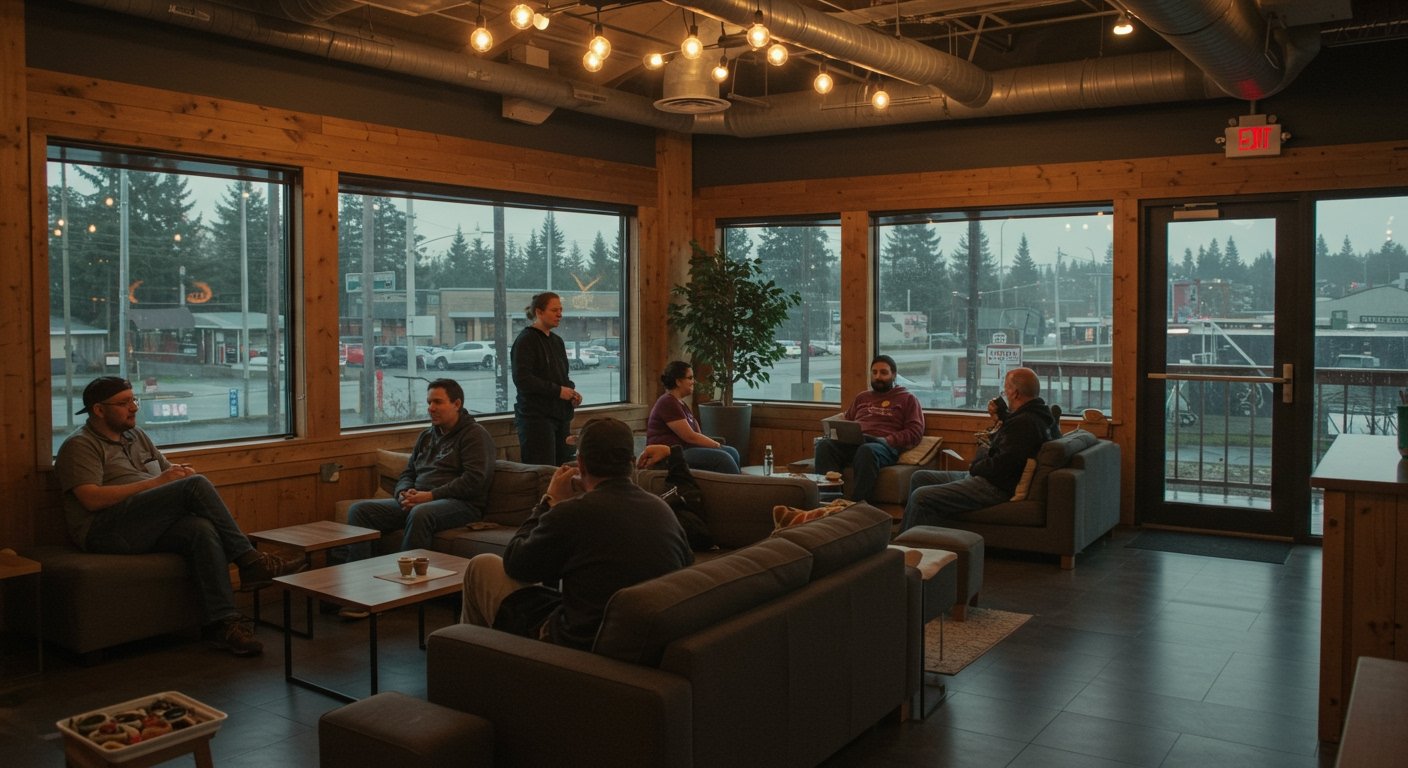PORTLAND, OR — A grassroots effort to establish dedicated spaces for cannabis consumption in Oregon has taken a significant step forward, with proponents filing the initial batch of voter signatures required to advance their proposal towards the November 2026 statewide ballot. The Oregon Cannabis Cafe Coalition (OCCC), a Portland-based advocacy group, is spearheading the campaign to legalize and regulate social lounges where adults can legally consume marijuana in a supervised setting.
The initiative seeks to carve out specific venues for cannabis use, a facet currently limited mostly to private residences under Oregon’s existing recreational marijuana laws. The collection of over 1,400 voter signatures marks a key procedural milestone, surpassing the minimum threshold of 1,000 required by state elections officials to initiate the process of preparing a ballot title and summary for the proposed measure.
The Scope of the Proposed Cannabis Lounges
Under the OCCC’s proposal, these social lounges would be operated by licensed small cannabis businesses, specifically microbusinesses, allowing them to diversify their offerings and create unique spaces for patrons. The measure envisions these lounges as locations where adults aged 21 and older could lawfully consume cannabis products through various methods, including smoking, vaping, and using non-edible forms. Importantly, the proposal explicitly allows these establishments to sell unmedicated food and beverages, providing a complete social experience distinct from a traditional dispensary.
The framework for these lounges is designed with clear boundaries to integrate safely into the existing regulatory landscape. A crucial element of the proposal is the strict prohibition of cannabis sales or distribution on the lounge premises themselves. This means any cannabis consumed on site would presumably need to be purchased elsewhere, such as an attached or nearby licensed dispensary, aligning the lounges as consumption-only venues.
Furthermore, the initiative expressly bans the presence or consumption of alcohol and tobacco within the lounges, ensuring a focus solely on cannabis consumption in a controlled environment. Proposed operational hours would see these establishments close by 2 a.m.
Navigating the Path to the 2026 Ballot
The recent submission of signatures represents just the first hurdle in a multi-stage process to qualify the measure for a public vote. Following the review and approval of the ballot title and summary by state officials, the OCCC campaign will face the more substantial task of gathering a significantly larger number of signatures.
To secure a place on the November 2026 state ballot, the coalition must collect approximately 120,000 valid voter signatures. This phase represents the primary challenge for the campaign, requiring extensive grassroots organizing and public outreach across Oregon.
Should the initiative successfully gather the requisite signatures and be approved by voters in the 2026 general election, the proposed law governing cannabis social lounges is slated to take effect on January 1, 2027.
Regulatory Framework and Local Authority
Oversight of the proposed cannabis lounges would fall under the purview of the Oregon Liquor and Cannabis Commission (OLCC), the state’s primary regulatory body for these industries. The OLCC would be responsible for licensing, setting operational rules, and enforcing compliance.
The proposal also incorporates a significant degree of local control. It grants local governments – including cities and counties – the explicit ability to regulate the number of cannabis social lounges permitted within their jurisdictions. This provision allows communities to tailor the implementation of the law to their specific needs and preferences. Local authorities could also impose further restrictions beyond those outlined in the state measure.
Penalties for violations of the regulations would be substantial, designed to ensure compliance and deter illicit activity. These could include fines, suspension or revocation of a lounge’s license, and potential civil or criminal penalties for operating a lounge without proper licensure.
Advocates for the measure argue that creating regulated social spaces for cannabis consumption would address a current gap in Oregon’s legalization framework, providing safe, legal, and community-oriented venues for adults while also supporting small, local cannabis businesses. The campaign now turns its focus to the challenging signature-gathering phase necessary to bring the question before Oregon voters in two years.




